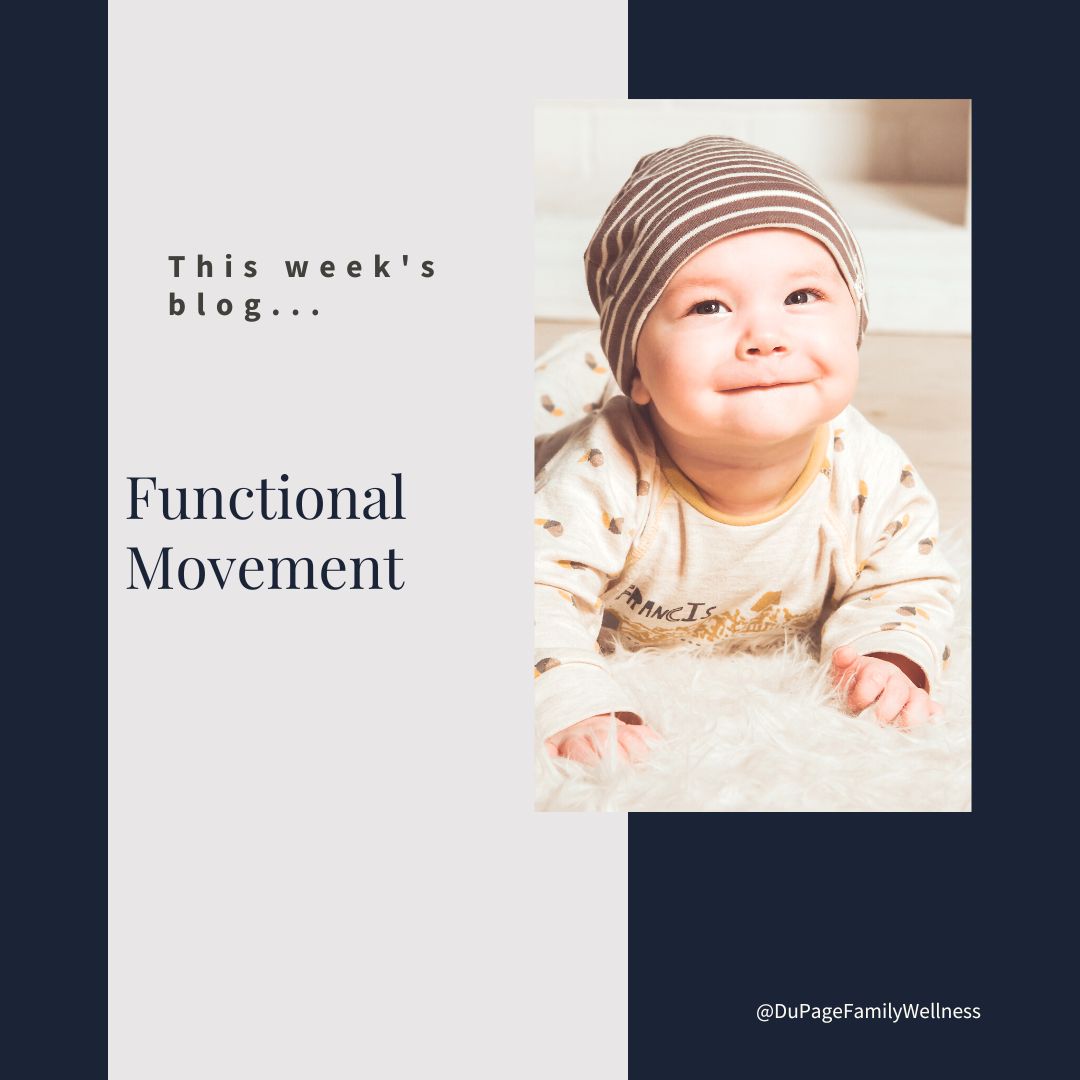 Since we do not have to teach babies how to move, we typically don’t think about all that goes into their development. If we look closely, however, there is much that we can learn from the amazing process these little ones go through as they grow.
Since we do not have to teach babies how to move, we typically don’t think about all that goes into their development. If we look closely, however, there is much that we can learn from the amazing process these little ones go through as they grow.
While each baby develops at their own pace, they generally develop certain movements in a way that builds upon each other. At first, they strengthen their core by laying on their back and kicking their legs. Then they strengthen the muscles needed to lift their heads, rollover, and crawl.
As we become adults, we are impacted by our environment to move in less effective ways. Research has found that the way a baby moves is the most efficient way to move. When we deviate from this type of movement we will not function at our best.
Let’s look at a set of simple functional movement exercises that can get our bodies moving in more effective ways.
Functional Movement
Functional Progression exercises are modeled after babies and how they move, organize movement patterns, and learn to stabilize. They allow us to reestablish movement patterns so that they become natural again.
As you go through these exercises, your body will begin to automatically move more effectively. You won’t have to think about it and struggle to move in a certain way. They are simple movement patterns and it doesn't take much time to incorporate these movements into your daily life.
Where to Begin
You will begin like a baby begins lying on their backs breathing from the diaphragm.
Breathing properly is a foundational piece of movement. Unfortunately, most adults do not breathe in a natural way. In fact, a pilot study of 96 people in 2003 that assessed breathing mechanics found that only 25% of people breathe properly.
Using the wrong muscles to breathe can lead to a host of problems such as recurrent chronic fatigue, anxiety, panic attacks, as well as many musculoskeletal symptoms.
If you are trying to make changes in the way that you breathe, it will take some time. But you can make real changes if you try to focus on your breathing technique at least once an hour. This video will show you what you should be doing to breathe properly.
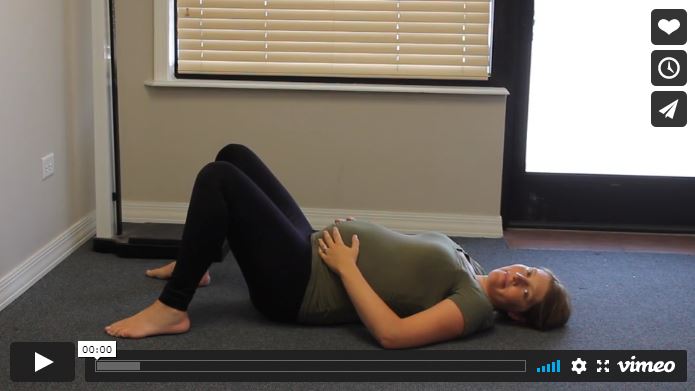
Remember, this is the foundation for all the other functional movement exercises, so don’t skip this important step.
Read more ...
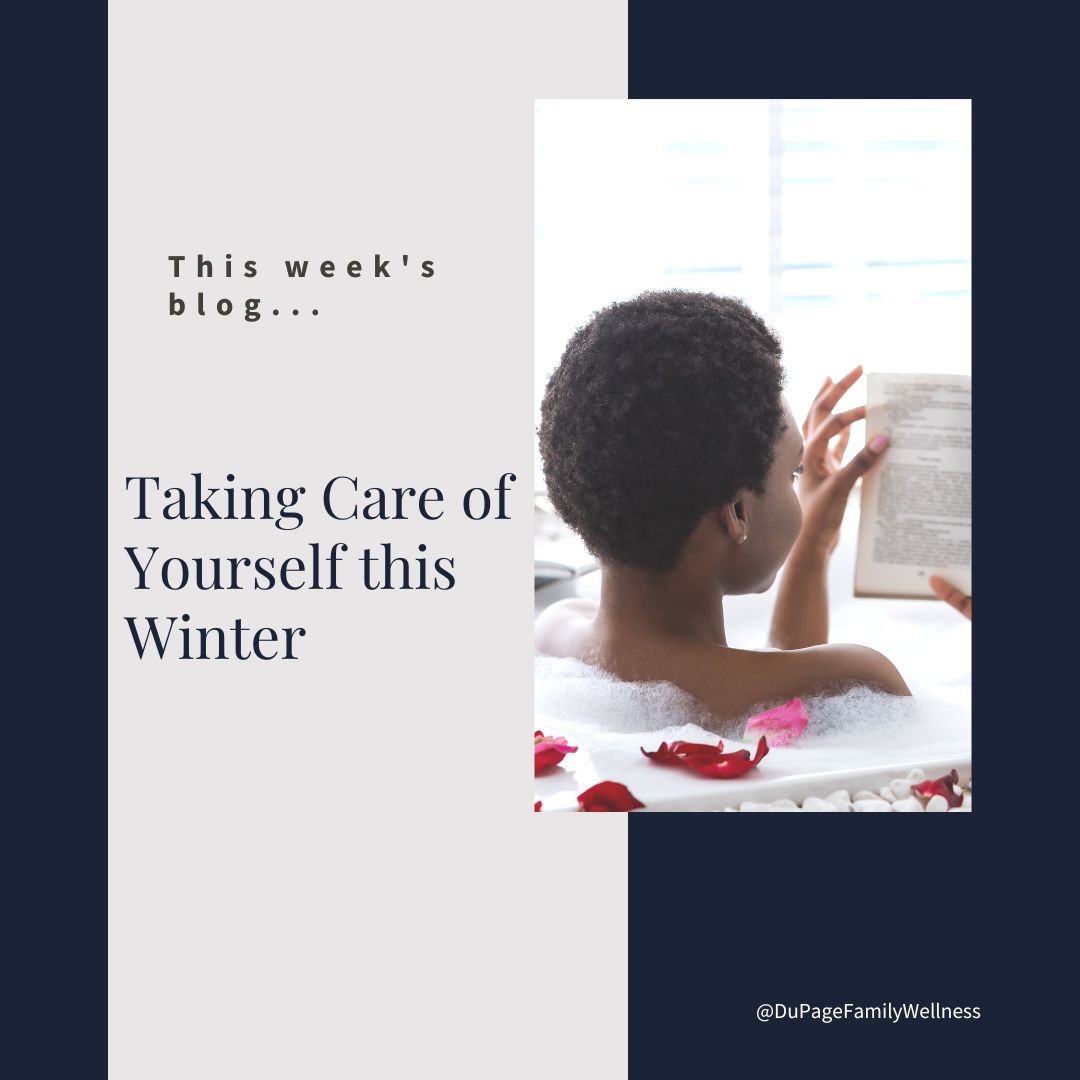 Brrr, it's chilly out there! As I look out my window, the sun is currently shining, but there sure have been some gray days recently. This time of year, many people get the “winter blues.” Scientifically speaking severe cases of this may be called seasonal affective disorder (SAD). This affects an estimated 10 million Americans with women being diagnosed four times as often as men.
Brrr, it's chilly out there! As I look out my window, the sun is currently shining, but there sure have been some gray days recently. This time of year, many people get the “winter blues.” Scientifically speaking severe cases of this may be called seasonal affective disorder (SAD). This affects an estimated 10 million Americans with women being diagnosed four times as often as men.
If you have symptoms severe enough to be clinically diagnosed or you are feeling down, it’s time to do some self-care. This is not an alternative to professional guidance from a psychologist or therapist, but honestly self-care is important for everyone.
Self-care doesn’t have to take long or cost a lot of money. Some self-care techniques only take five minutes and are completely free. While it’s nice to take vacations or do spa days, these little things may be more practical.
So, take time now to look at our biggest tips for taking care of yourself, and start implementing them for the rest of the winter. Maybe you will make a new habit that will serve you for the rest of your life!
Presence
Bringing awareness to the present moment, often done through awareness of your body and surroundings can be incredibly helpful. Most of our worries are about the future or the past, so focusing on the here and now can be extremely helpful in dealing with stress.
Simply close your eyes and pay attention to your breath or look at your surroundings noticing the different sensory input you are experiencing. The key is to be intentional and slow down to notice your body’s experience.
For more directed exercises check out the following.
Social Connection
We all know that meaningful social connections are good for your mental health, but did you know they make a huge impact on your physical health? Positive connections lead to the activation of the parasympathetic nervous system. This is often referred to as co-regulation of the nervous system and is the state where healing takes place.
So, connect with a friend...
- in person, if you are able
- with a video call so you can be face-to-face.
- through a phone call.
- by email and text.
And remember to set some time aside to focus on the people you have in your life on a daily basis. Having a meal, playing a quick game, reading a chapter of a book, or going for a walk together in the evening can be a great way to connect.
Read more ...
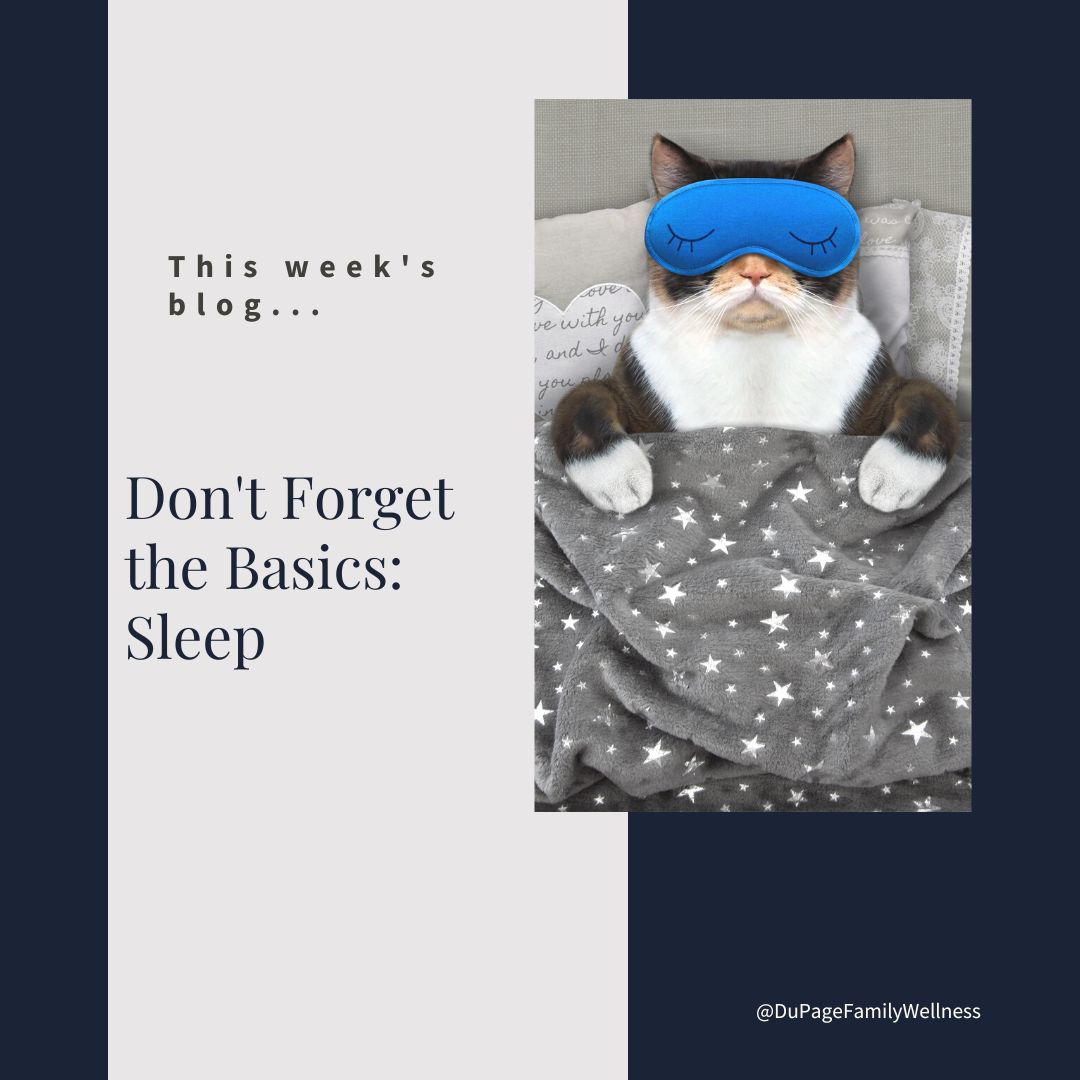 How much sleep do you get each night? It is important to remember that the amount of time you spend in bed is not equal to the number of hours you actually sleep. It takes time to fall asleep, so you need to take that into consideration.
How much sleep do you get each night? It is important to remember that the amount of time you spend in bed is not equal to the number of hours you actually sleep. It takes time to fall asleep, so you need to take that into consideration.
Sleep is essential for the basic repair of systems in the body including the neurological, endocrine, immune, musculoskeletal, and digestive systems. Without adequate sleep, you cannot be healthy. Unfortunately, it isn’t always a priority in our society.
Adults generally require 7-9 hours of sleep each night, but American adults only average 6.8 hours (this is over an hour less than it was in 1942). One-third of adults don’t even get 6 hours of sleep.
To make matters worse, more than a third of Americans have trouble sleeping every night while over half report sleep problems at least a few nights a week. It is no surprise that the use of sleep aids has dramatically increased in recent years.
Let’s look at the importance of sleep and what you can do to improve yours.
Sleep is Crucial
Have you ever realized that you get sick a lot more when you aren’t sleeping well? It is no coincidence. Sleep directly impacts your immune system, but that is not all it impacts. Sleep is also important for:
- Enhancing memory and mental clarity
- Musculoskeletal growth and repair
- Boosting mood and energy
- Increasing stress tolerance
What happens when you don't get enough sleep?
Melatonin (one of the main hormones controlling your circadian rhythms) increases immune system function to protect you from infections. If you are not getting enough sleep it can not do its job.
Sleeping for less than 6 hours a day is associated with low-grade chronic inflammation, worsening insulin resistance, as well as increasing your risk of obesity, diabetes, and cardiovascular disease. It is also associated with heart disease, hypertension, and psychiatric disorders like depression and anxiety.
You can eat a perfect diet, but if you are not sleeping enough and managing your stress, you can still tend towards poor health!
Read more ...
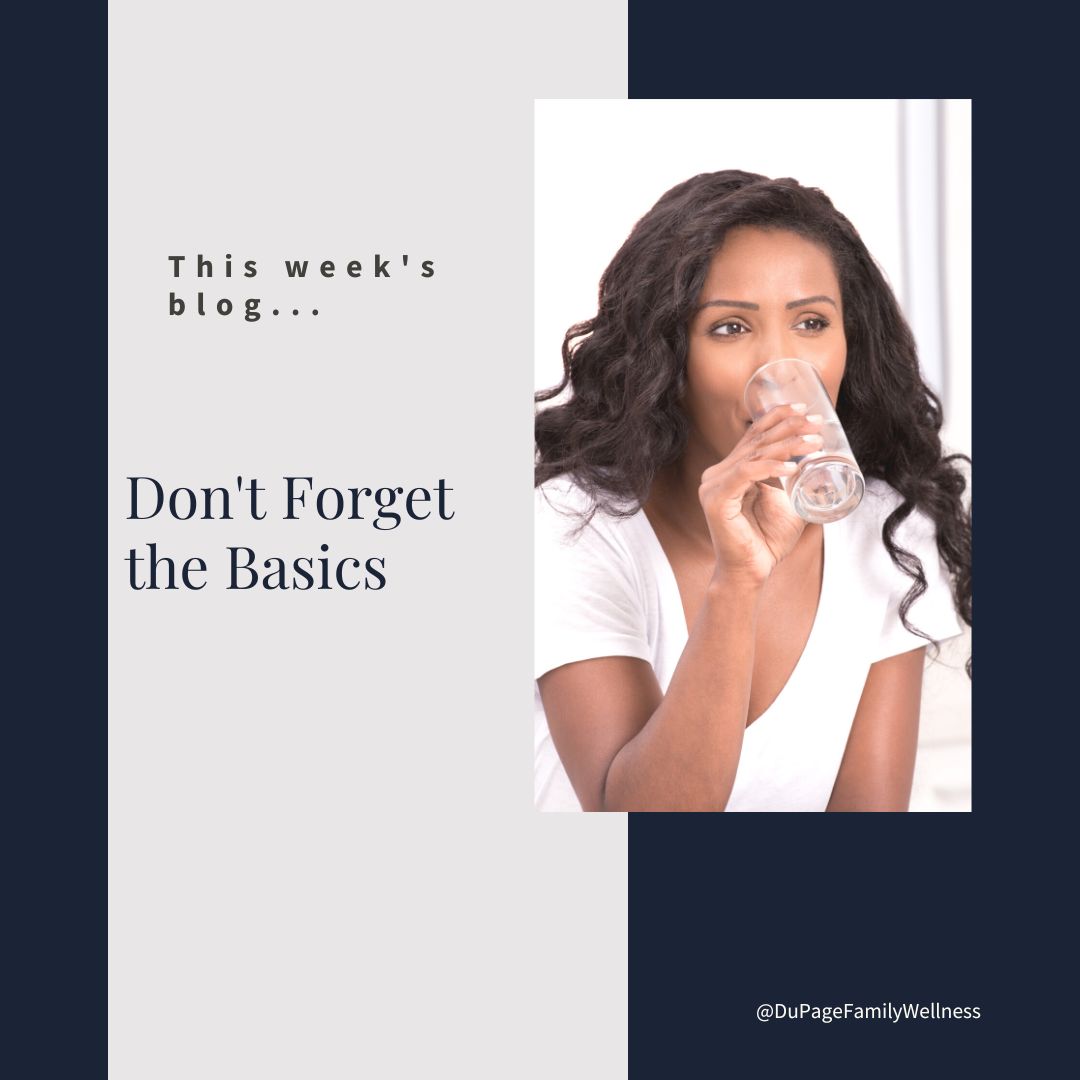 At the beginning of the year, many people make a point of realigning their goals. This often takes the form of a New Year’s resolution.
At the beginning of the year, many people make a point of realigning their goals. This often takes the form of a New Year’s resolution.
You may have a resolution to save money, exercise more, read more, eat healthy, or cut down on alcohol. These are all great goals, but it is important to include the basics alongside them.
One of the basics is remembering to stay hydrated while you are working towards your other goals. In fact, staying hydrated can help you achieve many of your other goals and feel good in the process.
Staying properly hydrated is more involved than simply drinking eight glasses of water. Let’s look at some of the nuances surrounding hydration and learn one trick to make it happen.
Beyond Water
You need water, but you also need all sorts of minerals. Your current water processing and filtering systems have probably stripped away most of those minerals from your water.
If you are drinking just plain water (especially if you have a lot of it), you can dilute the mineral-rich fluids in your body. This makes your kidneys work way harder than they need to, and you may find yourself running to the bathroom constantly to pee off all of that excess fluid.
Adrenal cocktails are a great way to counter these concerns. These are mineral-rich drinks that particularly focus on supporting sodium and potassium levels. This allows your body to replace the minerals lost and keep the liquid from diluting them. It also contains Vitamin C which helps in the utilization of these vitamins and provides bio-available copper.
Adrenal Cocktails
There are several ways to make an Adrenal Cocktail. My favorite recipe consists of 1 cup of coconut water, the juice of 1 lime, and 1/4 tsp. salt. You can find more adrenal cocktail recipes here.
After you try some of these recipes, you can experiment with some of your own. It’s easy to make one. Just include a source of sodium, potassium, and vitamin C.
Gel Water
When I'm not drinking my Adrenal Cocktails, I make sure all of my water is some form of gel water.
Read more ...
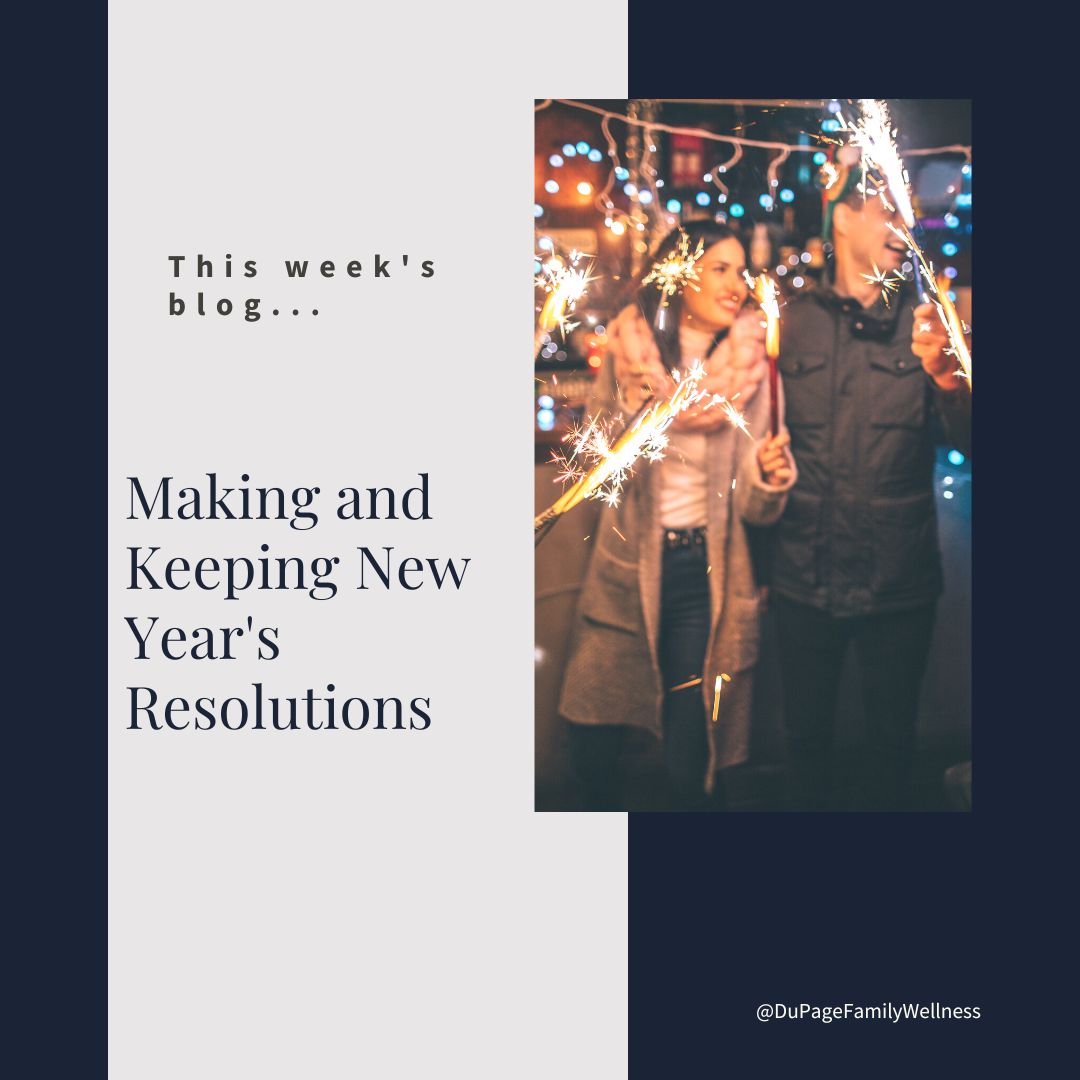 As the New Year approaches, millions of people begin planning their New Year’s Resolutions. Exercising, losing weight, and saving money are among the most popular goals.
As the New Year approaches, millions of people begin planning their New Year’s Resolutions. Exercising, losing weight, and saving money are among the most popular goals.
While the new year may feel like a great time to start fresh, accomplishing these resolutions is not as easy as it may seem. According to the University of Scranton, research suggests that only 8% of people achieve their New Year's goals.
Perhaps the reason so many people do not succeed is that they are missing some key elements in making their resolutions. This year let’s look at some important principles that are commonly missed and set you up for success!
1. Clarify Your “Why?”
You may rush through life to the point where you lose track of yourselves. In order to set meaningful goals, you will need to slow down and get back in touch with your true self.
Notice what you are really passionate about so that you know what is worth changing in your life. There’s no point in working hard towards a goal that doesn’t align with what you want in life. Make sure you are investing in things that really matter.
2. Know Thyself Deeper
Notice what drives your behavior. It is a crucial part of understanding yourself, so you are set up for success. This step can feel like you are doing anything, but don’t skip this step. It is so important!
Before attempting to add healthy behavior, notice your inner experience surrounding your current practice. If you want to stop eating late at night, notice the feeling you have when you eat before bed tonight.
Are you really hungry? If so, your plan will look much different than if you recognize that you are actually lonely.
3. Be Realistic
Take an honest look at your capacity. What is your schedule like? What commitments do you have? How is your physical and emotional energy?
As much as we hate to admit it, we are finite beings with limited capacity. Saying “yes” to one thing will mean saying “no” to something else. Make sure that your goal is worth saying “yes” to and figure out what you will say “no” to.
Read more ...
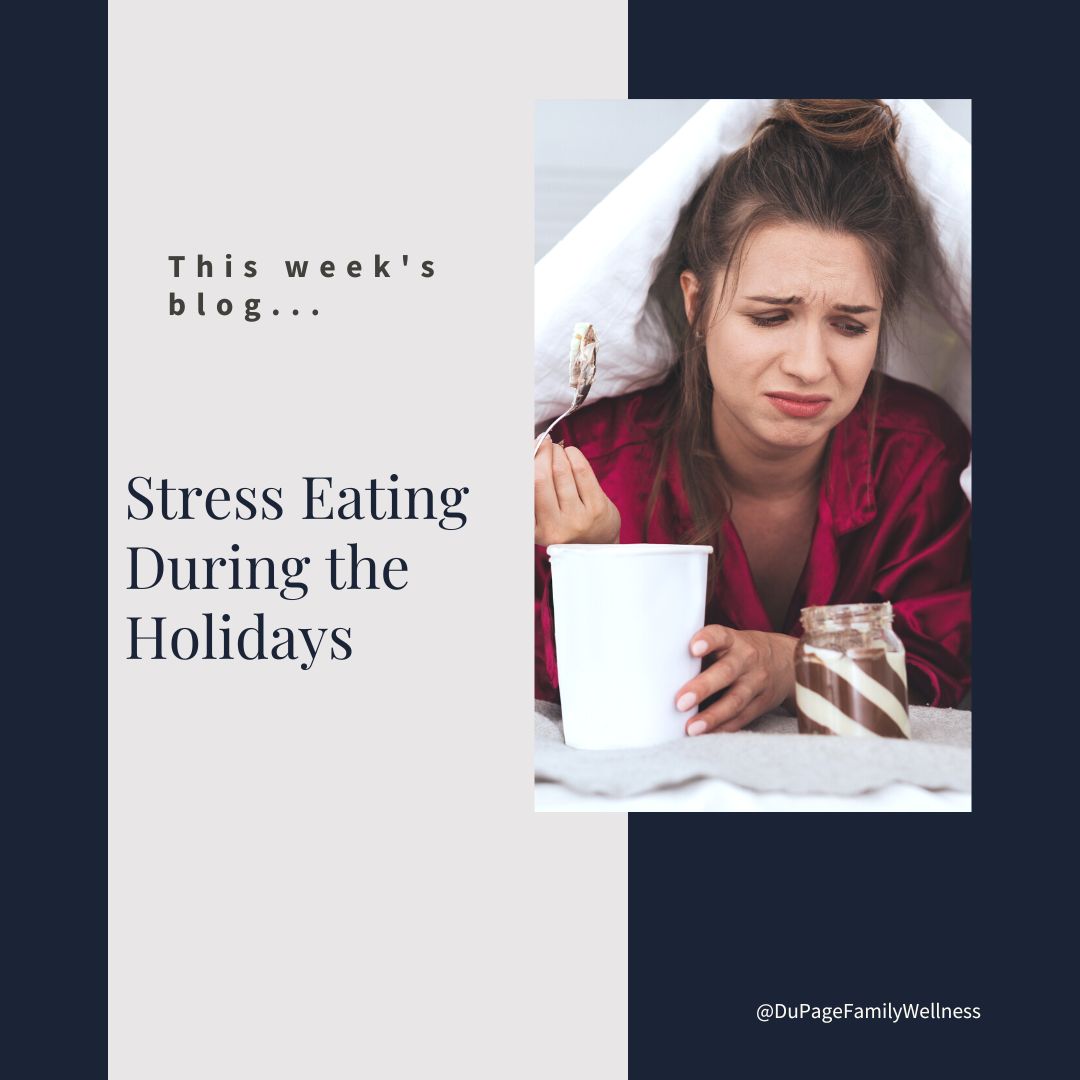 It can be tempting to reach for food when you are feeling the stress of the holidays, and with all the sweet treats around it is easier than ever to “stress eat!” Eating when you are stressed is considered emotional eating. It is an attempt to fill an emotional need rather than a physical one.
It can be tempting to reach for food when you are feeling the stress of the holidays, and with all the sweet treats around it is easier than ever to “stress eat!” Eating when you are stressed is considered emotional eating. It is an attempt to fill an emotional need rather than a physical one.
This strategy works temporarily as the treats distract you by the taste and affect the chemicals in your body. The surge of dopamine after a sweet treat brings temporary relief from the stress you are feeling, but it won’t last long.
While it may help you not to feel stressed in the moment, it doesn’t effectively deal with the underlying stressors and often leads to regret. There are many better ways to deal with stress, but first, you need to recognize when you are beginning to turn to food for relief.
Let’s take a look at emotional eating and how to handle it throughout the holiday season.
Building Awareness
Cultivating self-awareness is the first step to dealing with emotional eating. By checking in with yourself and knowing the clues, you can determine whether you are truly hungry or if you are trying to meet an emotional need.
When you go to eat, ask yourself, “How do I feel right now?”. Are you stressed, sad, lonely, angry, or bored? If you are experiencing a difficult emotion, ask yourself if you are really hungry or if you are trying to meet an emotional need.
Sometimes it can be hard to tell, but Mayo Clinic has identified some clues you can look for to determine if you are really hungry. For instance,
- physical hunger generally comes on gradually after a period of not eating, while emotional hunger can come on suddenly even if you have eaten recently.
- physical hunger is felt in the stomach, while emotional hunger is felt in the mind.
- physical hunger often builds gradually and there is patience felt in meeting that need, while emotional hunger tends to demand an immediate response.
- emotional hunger often feels like it can only be satisfied with a specific type of food, while physical hunger is able to be satisfied with a variety of options.
- emotional eating often makes you feel ashamed, while physical hunger just ends up leaving you satisfied.
Read more ...
 Since we do not have to teach babies how to move, we typically don’t think about all that goes into their development. If we look closely, however, there is much that we can learn from the amazing process these little ones go through as they grow.
Since we do not have to teach babies how to move, we typically don’t think about all that goes into their development. If we look closely, however, there is much that we can learn from the amazing process these little ones go through as they grow. 

 Brrr, it's chilly out there! As I look out my window, the sun is currently shining, but there sure have been some gray days recently. This time of year, many people get the “winter blues.” Scientifically speaking severe cases of this may be called seasonal affective disorder (SAD). This affects an estimated 10 million Americans with women being diagnosed four times as often as men.
Brrr, it's chilly out there! As I look out my window, the sun is currently shining, but there sure have been some gray days recently. This time of year, many people get the “winter blues.” Scientifically speaking severe cases of this may be called seasonal affective disorder (SAD). This affects an estimated 10 million Americans with women being diagnosed four times as often as men. How much sleep do you get each night? It is important to remember that the amount of time you spend in bed is not equal to the number of hours you actually sleep. It takes time to fall asleep, so you need to take that into consideration.
How much sleep do you get each night? It is important to remember that the amount of time you spend in bed is not equal to the number of hours you actually sleep. It takes time to fall asleep, so you need to take that into consideration. At the beginning of the year, many people make a point of realigning their goals. This often takes the form of a New Year’s resolution.
At the beginning of the year, many people make a point of realigning their goals. This often takes the form of a New Year’s resolution. As the New Year approaches, millions of people begin planning their New Year’s Resolutions. Exercising, losing weight, and saving money are among the most popular goals.
As the New Year approaches, millions of people begin planning their New Year’s Resolutions. Exercising, losing weight, and saving money are among the most popular goals.  It can be tempting to reach for food when you are feeling the stress of the holidays, and with all the sweet treats around it is easier than ever to “stress eat!” Eating when you are stressed is considered emotional eating. It is an attempt to fill an emotional need rather than a physical one.
It can be tempting to reach for food when you are feeling the stress of the holidays, and with all the sweet treats around it is easier than ever to “stress eat!” Eating when you are stressed is considered emotional eating. It is an attempt to fill an emotional need rather than a physical one.